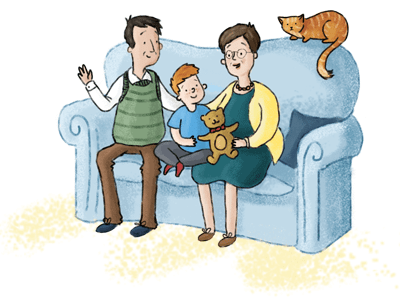
We often come across clients who are stepping into a courtroom for the very first time. As the court process is something that many have only seen on television, there can be misconceptions and unnecessary worries about attending court.
While emotions can run high in family court proceedings, what you see on TV is designed to seem dramatic. In reality, legal representatives try to work together to reduce the stress and cost for their clients.
Gabby Noyek, paralegal in the Bromleys family team, explores some common myths and fears people have when attending family court.
“My friend said that he has been to court and this happened…”
You should never compare your case to what has happened to someone you know, or something you’ve read online. Every person’s experience is different and each case is unique, so what may work for one family will not work for another.
“I want an Order making at the First Hearing!”
Whilst an Order is made after each hearing, not every case concludes on the first occasion and sometimes an interim Order is more appropriate. Matters may be be delayed (sometimes for several months) so more evidence can be gathered. This is especially common when there are welfare concerns.
The court will initially refer all new applications relating to children to CAFCASS (The Children and Family Court Advisory and Support Service) which will carry out Police and Local Authority checks. If those checks highlight concerns, or if the parties cannot agree on what is best for the children, further involvement from CAFCASS may be needed. The Court may also wish to see other evidence like drug test results or School Reports, and getting this information can take time.
“I don’t want you to be nice, I want you to fight my corner”
Many clients feel that they want to ‘win’ their case, but the reality is that there are very few ‘winners’ in family proceedings. Many clients are upset following the breakdown of their relationship or arrangements for their children and court proceedings can add to their distress.
While lawyers will “fight your corner” when needed, it is important to remember that the priority is to keep things running smoothly. Parents are not on trial in family proceedings, the main consideration is what is best for the children. Lawyers will always try their best to resolve your case in as amicably and quickly as they can.
“My barrister has not been involved in my case, will they be able to properly represent me in court?”
It is your decision whether or not you want to be represented in court, although it is something that we always recommend as it ensures that your case is wholly conveyed to the judge. In more complex cases, it may be necessary for a barrister to represent you within proceedings.
Barristers are chosen selectively based on their expertise and each client’s individual needs. Barristers are incredibly experienced and spend a large amount of time preparing for hearings. Nobody can prepare for all eventualities, so it can help to have someone that can think on their feet, especially in cases where any application to court is contested.
We understand that preparing to attend court can be distressing and emotionally challenging. Our team are experienced and empathetic, and will support you throughout the process. If you need legal advice regarding a family law matter, call us today on 0161 330 6821 or email bromleys@bromleys.co.uk.











